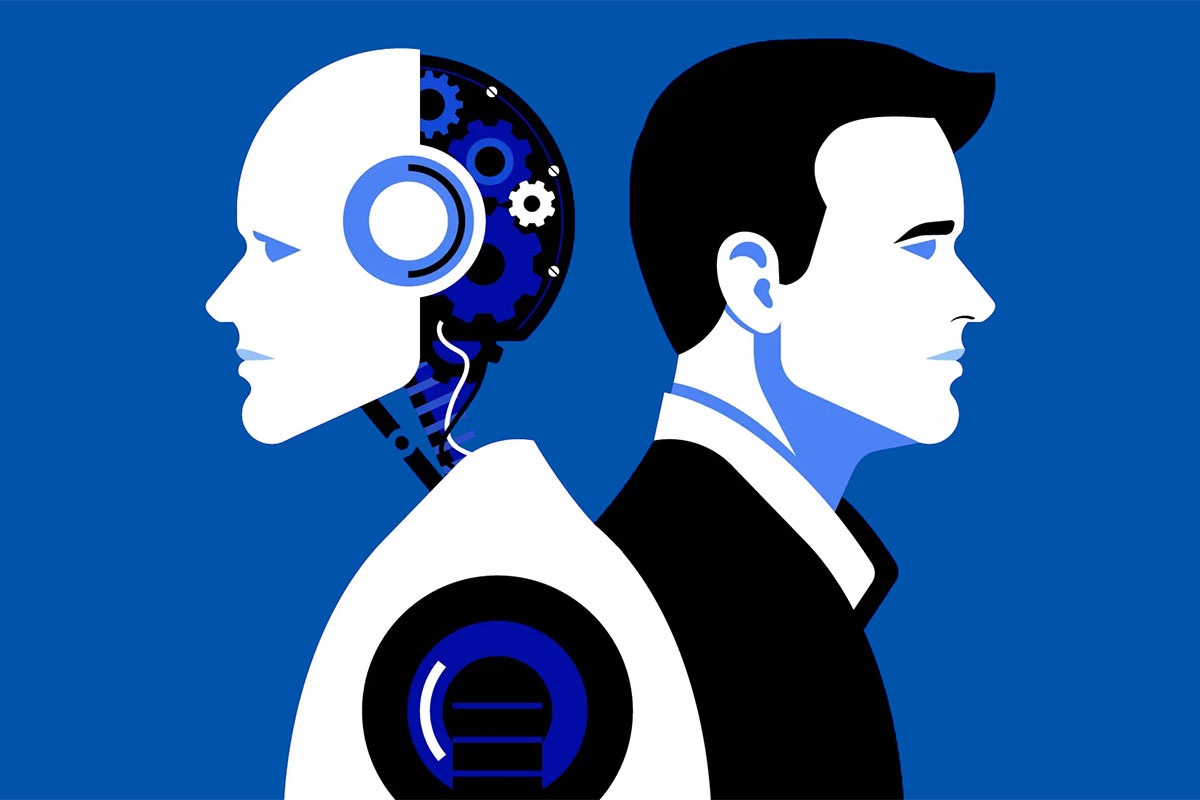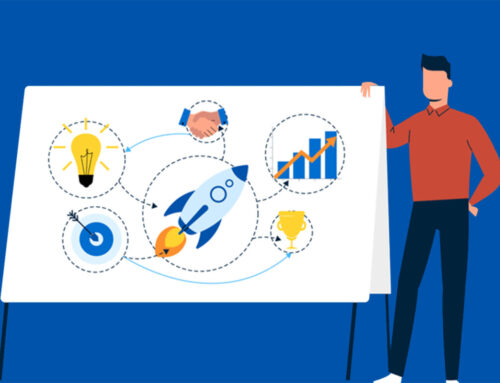Artificial Marketing or Marketing Intelligence?
Artificial Marketing or Marketing Intelligence? A question that underscores the transformative yet complex nature of AI in marketing.
Even in its infancy, AI has redefined marketing offering tools to analyse data, automate tasks, and personalise customer interactions at scale. While its potential is transformative, it raises questions about creativity, ethics, and human involvement. Is AI a replacement for human ingenuity or a partner to amplify it? The answer holds profound implications for how businesses connect with their audiences and sustain meaningful relationships in a digital era.
This article explores AI’s role in marketing, its advantages and challenges, and how businesses can balance automation with authenticity.
The Rise of AI in Marketing
AI marketing optimises campaigns through algorithms and data, automating repetitive tasks, predicting trends, and enhancing customer experiences.
Early AI tools focused on basic automation, but advancements in machine learning now power complex capabilities like predictive analytics, customer journey mapping, and content creation.
AI is no longer a luxury but an essential tool for competitive businesses of all sizes.
Advantages of AI in Marketing
1. Enhanced Data Analysis
AI processes vast amounts of data, from social media to customer transactions, uncovering trends and actionable insights at speeds impossible for humans. This allows businesses to adapt strategies dynamically and make informed decisions based on real-time analytics.
2. Personalisation at Scale
AI creates hyper-personalised experiences for large audiences. By analysing data such as browsing history and purchase behaviour, AI crafts targeted campaigns that resonate with individual preferences, increasing customer loyalty and conversion rates.
3. Efficiency Gains
Automation streamlines processes like data collection, customer segmentation, and social media management. Tools like chatbots and automated reporting free marketers to focus on strategy and creativity, scaling operations without sacrificing quality.
4. Improved Customer Insights
AI tracks customer interactions across touchpoints, providing a comprehensive view of their journey. This allows businesses to refine strategies and tailor offerings to specific needs, improving customer satisfaction and retention.
5. Predictive Analytics
AI forecasts future trends by analysing historical data, enabling proactive adjustments to campaigns. For instance, identifying customers at risk of leaving allows businesses to intervene with targeted offers, improving retention.
6. Content Creation
AI assists in generating high-quality content, including text, imagery, and video. While it enhances efficiency and consistency, human oversight ensures creativity and emotional resonance are maintained.
Challenges of AI in Marketing
1. Over-Reliance on Automation
AI lacks the cultural, societal, and emotional nuances that human marketers provide, essential for creating meaningful connections and authentic storytelling.
2. Ethical Concerns
AI can perpetuate biases from training data and raise privacy issues through extensive data collection. Businesses must ensure transparency, regulation compliance, and accountability for AI-driven decisions.
3. Cost Barriers
High upfront software, infrastructure, and training costs can deter small businesses. Long-term maintenance and adaptation also require ongoing investment.
4. Potential Misalignment
AI optimisations may conflict with brand values or neglect niche audiences, risking disconnection from key customer segments. Human oversight ensures alignment with broader marketing objectives and values.
AI Across the Marketing Funnel
In the Marketing Funnel, AI provides businesses and marketers with time and cost efficiencies across every stage:
Awareness
AI-powered programmatic advertising places ads strategically to maximise visibility and budget efficiency.
Interest
AI curates personalised content recommendations to deepen engagement and nurture interest.
Consideration
Dynamic tools like chatbots and comparison pages address queries and support decision-making.
Decision
AI simplifies purchases with predictive product bundles, tailored discounts, and frictionless checkout experiences.
Loyalty
Post-purchase analytics power personalised loyalty programmes, while sentiment analysis identifies areas for improvement.
While AI substantially improves output, challenges like cost, implementation time, and nuanced data accuracy often require human intervention. These pain points highlight the importance of collaboration between AI systems and human marketers. By leaning on human creativity and oversight, businesses can address complex challenges and ensure campaigns remain effective and authentic.
Striking a Balance
The Role of Human Expertise
While AI handles data-driven tasks, human marketers bring creativity, empathy, and strategic vision. They excel at crafting compelling stories and building authentic connections with audiences.
Collaboration Over Replacement
AI enhances human capabilities rather than replacing them. Combining AI insights with human creativity ensures campaigns are efficient, relevant, and emotionally resonant.
Optimal Use of AI
AI excels in areas like data processing, segmentation, and performance tracking. Tasks requiring emotional intelligence, cultural awareness, and innovation should remain human-led.
Tools of the Trade
Popular AI tools for marketing include:
HubSpot
For customer relationship management and email automation.
Salesforce Einstein
Offers predictive analytics and customer insights.
ChatGPT
Assists with content creation and customer support.
Hootsuite Insights
Tracks social media sentiment and trends.
Dynamic Yield
Specialises in personalisation at scale.
Selecting tools depends on your objectives. For experimentation, tools like Salesforce Einstein are effective, while personalisation-focused platforms like Dynamic Yield are ideal for targeted campaigns.
The Future of AI in Marketing
AI is evolving and revolutionising marketing by introducing innovations that enhance efficiency and redefine consumer engagement. These advancements will reshape how brands interact with their audiences and create lasting impressions. However, navigating this transformation requires a careful balance between embracing innovation and addressing ethical concerns to maintain consumer trust.
Real-Time Sentiment Analysis
AI’s ability to analyse consumer sentiment in real-time is becoming increasingly sophisticated. By scanning social media posts, reviews, and other online interactions, brands can gain immediate insights into how their audience feels about their products, services, or campaigns. These insights enable businesses to respond proactively, adjusting messaging or strategies quickly to maintain a positive brand image. For example, sentiment analysis can help identify emerging crises early, allowing brands to address issues before they escalate.
Voice Search Optimisation
The growing popularity of voice-activated devices such as smart speakers and virtual assistants has made voice search optimisation a critical focus for marketers. AI-powered tools are enabling businesses to tailor their content for natural language queries, ensuring their products and services remain discoverable in voice search results. This shift requires a nuanced understanding of conversational language, as consumers often phrase voice searches differently from typed queries. Advancements include more context-aware AI systems that provide personalised, voice-driven recommendations.
Generative AI for Dynamic Content Creation
Generative AI is already transforming content creation, but future iterations will enable even greater customisation. From writing unique product descriptions tailored to individual users to producing interactive, immersive video experiences, generative AI will make it possible to deliver highly engaging and dynamic content at scale. For instance, AI could generate personalised video ads that adapt to a viewer’s preferences or previous interactions with a brand, creating a sense of exclusivity and relevance.
Hyper-Personalisation
AI’s capabilities in data analysis and machine learning are driving hyper-personalisation to new heights. Future developments will likely see AI creating individualised customer journeys that dynamically adjust in response to real-time behaviours. For example, an AI-powered system could redesign a user’s entire digital experience from website layout to product recommendations, and pricing, based on their browsing history and preferences. This level of personalisation will strengthen brand loyalty and improve conversion rates.
Ethical AI Practices and Regulations
As AI becomes more integral to marketing, the importance of ethical practices will grow. Issues such as data privacy, transparency in AI decision-making, and mitigating algorithmic biases will take centre stage. Regulatory frameworks like GDPR in Europe and similar legislation worldwide are likely to evolve, setting stricter guidelines on how businesses can collect, process, and use customer data. Companies that prioritise ethical AI usage and transparency will gain a competitive edge, building stronger trust with their customers.
Integration of Augmented Reality (AR) and AI
AI innovations have merged with augmented reality to create even more engaging marketing experiences. For example, AR apps powered by AI allow customers to visualise how a piece of furniture looks in their home or how a pair of shoes fits their style. By combining AI’s data insights with AR’s immersive capabilities, brands can deliver highly interactive and memorable experiences that drive purchase decisions.
Advanced Predictive Analytics
Predictive analytics will move beyond forecasting customer behaviour to providing actionable insights on market trends and competitor strategies. AI tools could simulate various market scenarios, enabling businesses to plan and adapt more effectively. For instance, AI might predict the impact of a new product launch or a shift in consumer preferences, enabling businesses to make informed, proactive decisions.
Conclusion
AI is revolutionising marketing with efficiency, personalisation, and predictive capabilities. However, its limitations in creativity, ethics, and emotional intelligence underscore the need for human collaboration. Brands that prioritise trust, transparency, and responsible AI usage will not only stay ahead of the curve but also build stronger, more meaningful connections with their customers.
Ready to integrate AI into your marketing? Minutiae Media combines cutting-edge AI tools with expert marketers to build strategies tailored to your goals.
Call Minutiae Media on 0203 712 6266 to discuss how we can help you achieve a perfect balance of technology and creativity.
Artificial Marketing or Marketing Intelligence?
Artificial Marketing or Marketing Intelligence? A question that underscores the transformative yet complex nature of AI in marketing.
Even in its infancy, AI has redefined marketing offering tools to analyse data, automate tasks, and personalise customer interactions at scale. While its potential is transformative, it raises questions about creativity, ethics, and human involvement. Is AI a replacement for human ingenuity or a partner to amplify it? The answer holds profound implications for how businesses connect with their audiences and sustain meaningful relationships in a digital era.
This article explores AI’s role in marketing, its advantages and challenges, and how businesses can balance automation with authenticity.
The Rise of AI in Marketing
AI marketing optimises campaigns through algorithms and data, automating repetitive tasks, predicting trends, and enhancing customer experiences.
Early AI tools focused on basic automation, but advancements in machine learning now power complex capabilities like predictive analytics, customer journey mapping, and content creation.
AI is no longer a luxury but an essential tool for competitive businesses of all sizes.
Advantages of AI in Marketing
1. Enhanced Data Analysis
AI processes vast amounts of data, from social media to customer transactions, uncovering trends and actionable insights at speeds impossible for humans. This allows businesses to adapt strategies dynamically and make informed decisions based on real-time analytics.
2. Personalisation at Scale
AI creates hyper-personalised experiences for large audiences. By analysing data such as browsing history and purchase behaviour, AI crafts targeted campaigns that resonate with individual preferences, increasing customer loyalty and conversion rates.
3. Efficiency Gains
Automation streamlines processes like data collection, customer segmentation, and social media management. Tools like chatbots and automated reporting free marketers to focus on strategy and creativity, scaling operations without sacrificing quality.
4. Improved Customer Insights
AI tracks customer interactions across touchpoints, providing a comprehensive view of their journey. This allows businesses to refine strategies and tailor offerings to specific needs, improving customer satisfaction and retention.
5. Predictive Analytics
AI forecasts future trends by analysing historical data, enabling proactive adjustments to campaigns. For instance, identifying customers at risk of leaving allows businesses to intervene with targeted offers, improving retention.
6. Content Creation
AI assists in generating high-quality content, including text, imagery, and video. While it enhances efficiency and consistency, human oversight ensures creativity and emotional resonance are maintained.
Challenges of AI in Marketing
1. Over-Reliance on Automation
AI lacks the cultural, societal, and emotional nuances that human marketers provide, essential for creating meaningful connections and authentic storytelling.
2. Ethical Concerns
AI can perpetuate biases from training data and raise privacy issues through extensive data collection. Businesses must ensure transparency, regulation compliance, and accountability for AI-driven decisions.
3. Cost Barriers
High upfront software, infrastructure, and training costs can deter small businesses. Long-term maintenance and adaptation also require ongoing investment.
4. Potential Misalignment
AI optimisations may conflict with brand values or neglect niche audiences, risking disconnection from key customer segments. Human oversight ensures alignment with broader marketing objectives and values.
AI Across the Marketing Funnel
In the Marketing Funnel, AI provides businesses and marketers with time and cost efficiencies across every stage:
Awareness
AI-powered programmatic advertising places ads strategically to maximise visibility and budget efficiency.
Interest
AI curates personalised content recommendations to deepen engagement and nurture interest.
Consideration
Dynamic tools like chatbots and comparison pages address queries and support decision-making.
Decision
AI simplifies purchases with predictive product bundles, tailored discounts, and frictionless checkout experiences.
Loyalty
Post-purchase analytics power personalised loyalty programmes, while sentiment analysis identifies areas for improvement.
While AI substantially improves output, challenges like cost, implementation time, and nuanced data accuracy often require human intervention. These pain points highlight the importance of collaboration between AI systems and human marketers. By leaning on human creativity and oversight, businesses can address complex challenges and ensure campaigns remain effective and authentic.
Striking a Balance
The Role of Human Expertise
While AI handles data-driven tasks, human marketers bring creativity, empathy, and strategic vision. They excel at crafting compelling stories and building authentic connections with audiences.
Collaboration Over Replacement
AI enhances human capabilities rather than replacing them. Combining AI insights with human creativity ensures campaigns are efficient, relevant, and emotionally resonant.
Optimal Use of AI
AI excels in areas like data processing, segmentation, and performance tracking. Tasks requiring emotional intelligence, cultural awareness, and innovation should remain human-led.
Tools of the Trade
Popular AI tools for marketing include:
HubSpot
For customer relationship management and email automation.
Salesforce Einstein
Offers predictive analytics and customer insights.
ChatGPT
Assists with content creation and customer support.
Hootsuite Insights
Tracks social media sentiment and trends.
Dynamic Yield
Specialises in personalisation at scale.
Selecting tools depends on your objectives. For experimentation, tools like Salesforce Einstein are effective, while personalisation-focused platforms like Dynamic Yield are ideal for targeted campaigns.
The Future of AI in Marketing
AI is evolving and revolutionising marketing by introducing innovations that enhance efficiency and redefine consumer engagement. These advancements will reshape how brands interact with their audiences and create lasting impressions. However, navigating this transformation requires a careful balance between embracing innovation and addressing ethical concerns to maintain consumer trust.
Real-Time Sentiment Analysis
AI’s ability to analyse consumer sentiment in real-time is becoming increasingly sophisticated. By scanning social media posts, reviews, and other online interactions, brands can gain immediate insights into how their audience feels about their products, services, or campaigns. These insights enable businesses to respond proactively, adjusting messaging or strategies quickly to maintain a positive brand image. For example, sentiment analysis can help identify emerging crises early, allowing brands to address issues before they escalate.
Voice Search Optimisation
The growing popularity of voice-activated devices such as smart speakers and virtual assistants has made voice search optimisation a critical focus for marketers. AI-powered tools are enabling businesses to tailor their content for natural language queries, ensuring their products and services remain discoverable in voice search results. This shift requires a nuanced understanding of conversational language, as consumers often phrase voice searches differently from typed queries. Advancements include more context-aware AI systems that provide personalised, voice-driven recommendations.
Generative AI for Dynamic Content Creation
Generative AI is already transforming content creation, but future iterations will enable even greater customisation. From writing unique product descriptions tailored to individual users to producing interactive, immersive video experiences, generative AI will make it possible to deliver highly engaging and dynamic content at scale. For instance, AI could generate personalised video ads that adapt to a viewer’s preferences or previous interactions with a brand, creating a sense of exclusivity and relevance.
Hyper-Personalisation
AI’s capabilities in data analysis and machine learning are driving hyper-personalisation to new heights. Future developments will likely see AI creating individualised customer journeys that dynamically adjust in response to real-time behaviours. For example, an AI-powered system could redesign a user’s entire digital experience from website layout to product recommendations, and pricing, based on their browsing history and preferences. This level of personalisation will strengthen brand loyalty and improve conversion rates.
Ethical AI Practices and Regulations
As AI becomes more integral to marketing, the importance of ethical practices will grow. Issues such as data privacy, transparency in AI decision-making, and mitigating algorithmic biases will take centre stage. Regulatory frameworks like GDPR in Europe and similar legislation worldwide are likely to evolve, setting stricter guidelines on how businesses can collect, process, and use customer data. Companies that prioritise ethical AI usage and transparency will gain a competitive edge, building stronger trust with their customers.
Integration of Augmented Reality (AR) and AI
AI innovations have merged with augmented reality to create even more engaging marketing experiences. For example, AR apps powered by AI allow customers to visualise how a piece of furniture looks in their home or how a pair of shoes fits their style. By combining AI’s data insights with AR’s immersive capabilities, brands can deliver highly interactive and memorable experiences that drive purchase decisions.
Advanced Predictive Analytics
Predictive analytics will move beyond forecasting customer behaviour to providing actionable insights on market trends and competitor strategies. AI tools could simulate various market scenarios, enabling businesses to plan and adapt more effectively. For instance, AI might predict the impact of a new product launch or a shift in consumer preferences, enabling businesses to make informed, proactive decisions.
Conclusion
AI is revolutionising marketing with efficiency, personalisation, and predictive capabilities. However, its limitations in creativity, ethics, and emotional intelligence underscore the need for human collaboration. Brands that prioritise trust, transparency, and responsible AI usage will not only stay ahead of the curve but also build stronger, more meaningful connections with their customers.
Ready to integrate AI into your marketing? Minutiae Media combines cutting-edge AI tools with expert marketers to build strategies tailored to your goals.
Call Minutiae Media on 0203 712 6266 to discuss how we can help you achieve a perfect balance of technology and creativity.
Artificial Marketing or Marketing Intelligence?
Artificial Marketing or Marketing Intelligence? A question that underscores the transformative yet complex nature of AI in marketing.
Even in its infancy, AI has redefined marketing offering tools to analyse data, automate tasks, and personalise customer interactions at scale. While its potential is transformative, it raises questions about creativity, ethics, and human involvement. Is AI a replacement for human ingenuity or a partner to amplify it? The answer holds profound implications for how businesses connect with their audiences and sustain meaningful relationships in a digital era.
This article explores AI’s role in marketing, its advantages and challenges, and how businesses can balance automation with authenticity.
The Rise of AI in Marketing
AI marketing optimises campaigns through algorithms and data, automating repetitive tasks, predicting trends, and enhancing customer experiences.
Early AI tools focused on basic automation, but advancements in machine learning now power complex capabilities like predictive analytics, customer journey mapping, and content creation.
AI is no longer a luxury but an essential tool for competitive businesses of all sizes.
Advantages of AI in Marketing
1. Enhanced Data Analysis
AI processes vast amounts of data, from social media to customer transactions, uncovering trends and actionable insights at speeds impossible for humans. This allows businesses to adapt strategies dynamically and make informed decisions based on real-time analytics.
2. Personalisation at Scale
AI creates hyper-personalised experiences for large audiences. By analysing data such as browsing history and purchase behaviour, AI crafts targeted campaigns that resonate with individual preferences, increasing customer loyalty and conversion rates.
3. Efficiency Gains
Automation streamlines processes like data collection, customer segmentation, and social media management. Tools like chatbots and automated reporting free marketers to focus on strategy and creativity, scaling operations without sacrificing quality.
4. Improved Customer Insights
AI tracks customer interactions across touchpoints, providing a comprehensive view of their journey. This allows businesses to refine strategies and tailor offerings to specific needs, improving customer satisfaction and retention.
5. Predictive Analytics
AI forecasts future trends by analysing historical data, enabling proactive adjustments to campaigns. For instance, identifying customers at risk of leaving allows businesses to intervene with targeted offers, improving retention.
6. Content Creation
AI assists in generating high-quality content, including text, imagery, and video. While it enhances efficiency and consistency, human oversight ensures creativity and emotional resonance are maintained.
Challenges of AI in Marketing
1. Over-Reliance on Automation
AI lacks the cultural, societal, and emotional nuances that human marketers provide, essential for creating meaningful connections and authentic storytelling.
2. Ethical Concerns
AI can perpetuate biases from training data and raise privacy issues through extensive data collection. Businesses must ensure transparency, regulation compliance, and accountability for AI-driven decisions.
3. Cost Barriers
High upfront software, infrastructure, and training costs can deter small businesses. Long-term maintenance and adaptation also require ongoing investment.
4. Potential Misalignment
AI optimisations may conflict with brand values or neglect niche audiences, risking disconnection from key customer segments. Human oversight ensures alignment with broader marketing objectives and values.
AI Across the Marketing Funnel
In the Marketing Funnel, AI provides businesses and marketers with time and cost efficiencies across every stage:
Awareness
AI-powered programmatic advertising places ads strategically to maximise visibility and budget efficiency.
Interest
AI curates personalised content recommendations to deepen engagement and nurture interest.
Consideration
Dynamic tools like chatbots and comparison pages address queries and support decision-making.
Decision
AI simplifies purchases with predictive product bundles, tailored discounts, and frictionless checkout experiences.
Loyalty
Post-purchase analytics power personalised loyalty programmes, while sentiment analysis identifies areas for improvement.
While AI substantially improves output, challenges like cost, implementation time, and nuanced data accuracy often require human intervention. These pain points highlight the importance of collaboration between AI systems and human marketers. By leaning on human creativity and oversight, businesses can address complex challenges and ensure campaigns remain effective and authentic.
Striking a Balance
The Role of Human Expertise
While AI handles data-driven tasks, human marketers bring creativity, empathy, and strategic vision. They excel at crafting compelling stories and building authentic connections with audiences.
Collaboration Over Replacement
AI enhances human capabilities rather than replacing them. Combining AI insights with human creativity ensures campaigns are efficient, relevant, and emotionally resonant.
Optimal Use of AI
AI excels in areas like data processing, segmentation, and performance tracking. Tasks requiring emotional intelligence, cultural awareness, and innovation should remain human-led.
Tools of the Trade
Popular AI tools for marketing include:
HubSpot
For customer relationship management and email automation.
Salesforce Einstein
Offers predictive analytics and customer insights.
ChatGPT
Assists with content creation and customer support.
Hootsuite Insights
Tracks social media sentiment and trends.
Dynamic Yield
Specialises in personalisation at scale.
Selecting tools depends on your objectives. For experimentation, tools like Salesforce Einstein are effective, while personalisation-focused platforms like Dynamic Yield are ideal for targeted campaigns.
The Future of AI in Marketing
AI is evolving and revolutionising marketing by introducing innovations that enhance efficiency and redefine consumer engagement. These advancements will reshape how brands interact with their audiences and create lasting impressions. However, navigating this transformation requires a careful balance between embracing innovation and addressing ethical concerns to maintain consumer trust.
Real-Time Sentiment Analysis
AI’s ability to analyse consumer sentiment in real-time is becoming increasingly sophisticated. By scanning social media posts, reviews, and other online interactions, brands can gain immediate insights into how their audience feels about their products, services, or campaigns. These insights enable businesses to respond proactively, adjusting messaging or strategies quickly to maintain a positive brand image. For example, sentiment analysis can help identify emerging crises early, allowing brands to address issues before they escalate.
Voice Search Optimisation
The growing popularity of voice-activated devices such as smart speakers and virtual assistants has made voice search optimisation a critical focus for marketers. AI-powered tools are enabling businesses to tailor their content for natural language queries, ensuring their products and services remain discoverable in voice search results. This shift requires a nuanced understanding of conversational language, as consumers often phrase voice searches differently from typed queries. Advancements include more context-aware AI systems that provide personalised, voice-driven recommendations.
Generative AI for Dynamic Content Creation
Generative AI is already transforming content creation, but future iterations will enable even greater customisation. From writing unique product descriptions tailored to individual users to producing interactive, immersive video experiences, generative AI will make it possible to deliver highly engaging and dynamic content at scale. For instance, AI could generate personalised video ads that adapt to a viewer’s preferences or previous interactions with a brand, creating a sense of exclusivity and relevance.
Hyper-Personalisation
AI’s capabilities in data analysis and machine learning are driving hyper-personalisation to new heights. Future developments will likely see AI creating individualised customer journeys that dynamically adjust in response to real-time behaviours. For example, an AI-powered system could redesign a user’s entire digital experience from website layout to product recommendations, and pricing, based on their browsing history and preferences. This level of personalisation will strengthen brand loyalty and improve conversion rates.
Ethical AI Practices and Regulations
As AI becomes more integral to marketing, the importance of ethical practices will grow. Issues such as data privacy, transparency in AI decision-making, and mitigating algorithmic biases will take centre stage. Regulatory frameworks like GDPR in Europe and similar legislation worldwide are likely to evolve, setting stricter guidelines on how businesses can collect, process, and use customer data. Companies that prioritise ethical AI usage and transparency will gain a competitive edge, building stronger trust with their customers.
Integration of Augmented Reality (AR) and AI
AI innovations have merged with augmented reality to create even more engaging marketing experiences. For example, AR apps powered by AI allow customers to visualise how a piece of furniture looks in their home or how a pair of shoes fits their style. By combining AI’s data insights with AR’s immersive capabilities, brands can deliver highly interactive and memorable experiences that drive purchase decisions.
Advanced Predictive Analytics
Predictive analytics will move beyond forecasting customer behaviour to providing actionable insights on market trends and competitor strategies. AI tools could simulate various market scenarios, enabling businesses to plan and adapt more effectively. For instance, AI might predict the impact of a new product launch or a shift in consumer preferences, enabling businesses to make informed, proactive decisions.
Conclusion
AI is revolutionising marketing with efficiency, personalisation, and predictive capabilities. However, its limitations in creativity, ethics, and emotional intelligence underscore the need for human collaboration. Brands that prioritise trust, transparency, and responsible AI usage will not only stay ahead of the curve but also build stronger, more meaningful connections with their customers.
Ready to integrate AI into your marketing? Minutiae Media combines cutting-edge AI tools with expert marketers to build strategies tailored to your goals.
Call Minutiae Media on 0203 712 6266 to discuss how we can help you achieve a perfect balance of technology and creativity.







